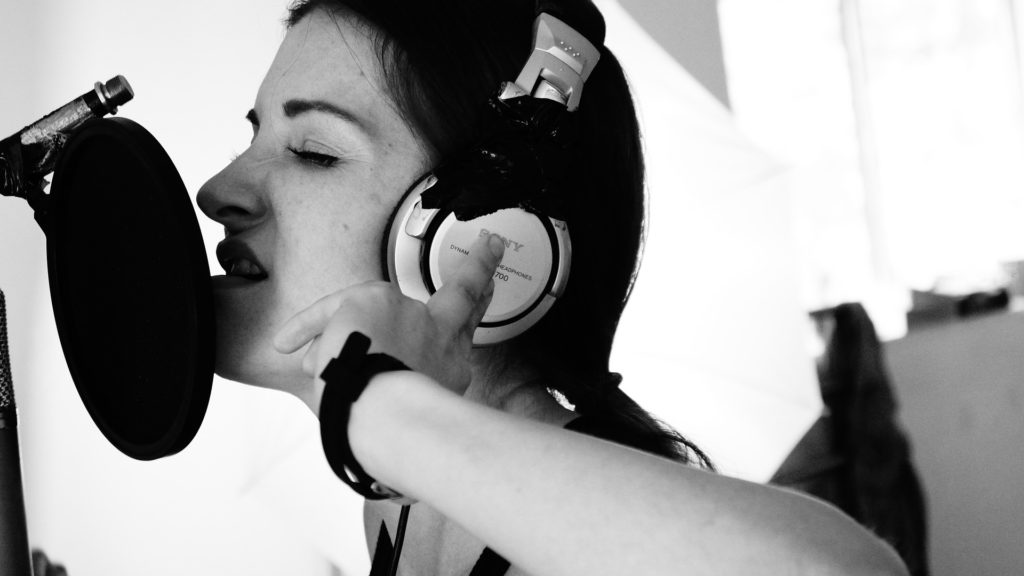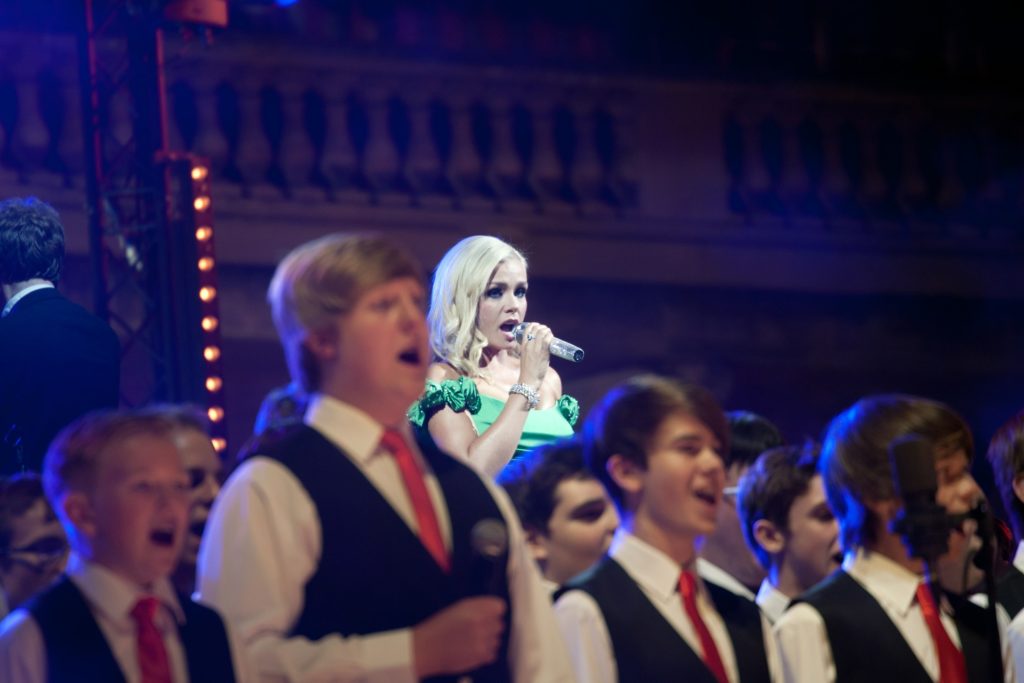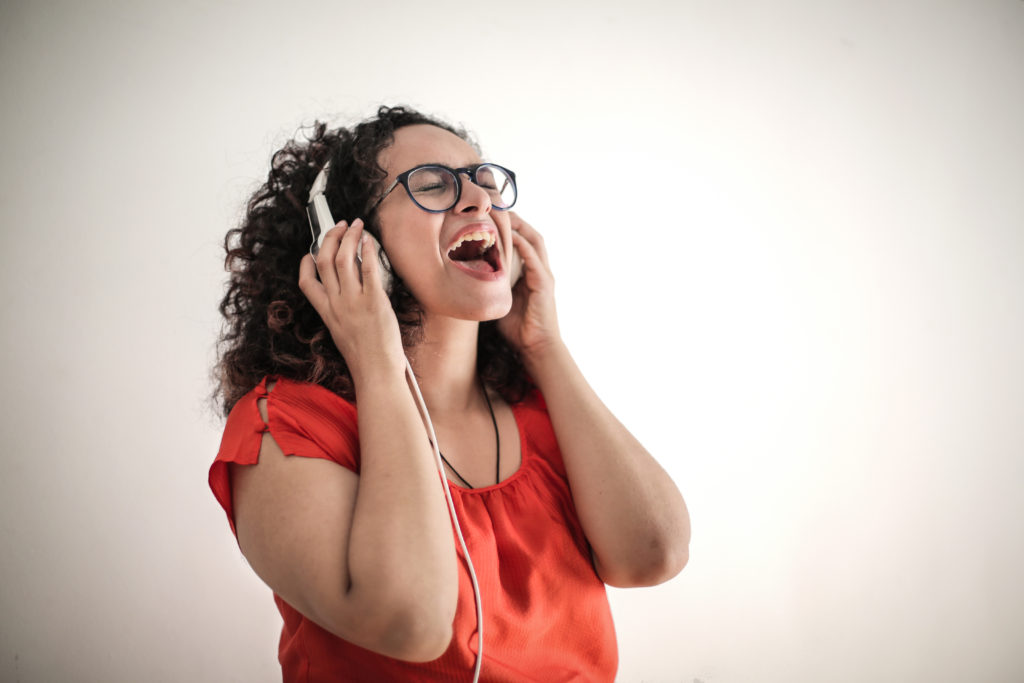
Can You Learn Singing At Any Age?
Learning how to control your voice for singing requires using correct breathing, pitch, rhythm, and range. It can take years to hone your vocal skills. However singing doesn’t discriminate.
You can learn singing at any age. It doesn’t matter how old you are. Basically the only difference of learning singing at an older age versus younger will be how you learn singing. While teens may learn how to hone their vocal talent by singing their favorite pop music songs in school choirs, adults will likely learn through church or community choirs.
What does have more adverse affects on your singing would include the genre you want to sing in and your decision on taking voice lessons or not.
Where People Learn Singing From Preteen to Older Adults
While age doesn’t hinder your ability to learn signing, it can change where and how quickly you learn to sing well. Different ages learn in different places which may speed up or slow down vocal progress.
How Vocal Learning Differs with Age
Here is a chart showing the common areas singing is learned for various ages:
| Age Ranges | Ways to Increase Vocal Talent |
| Pre-teen (0-12 years) | Learning to sing by ear versus reading notes by singing trending music.Starting kids with church choirs.Putting children in school choirs.Entering school music contests. |
| Teenage (13-19 years) | Learning how to sing through popular songs they know using ear training versus note reading. Practicing singing talent by being a vocalist in a band. Could be a backup vocalist or lead singer. May be part of a boy band or girl band where all vocalists are relatively equally featured.Could compete in school based activities like choir, music contests, school plays, and musicals. Honing music talent by studying in preparation for a music major or minor in college. |
| Adult (20-64 years) | The best way to learn for adults is to get private lessons. This helps you really learn the basics of singing without hurting one’s voice.Other places to further vocal training would be to sing in church choirs, community choirs, or join a community theater like a musical. |
| Older Adult Years (65+ years) | While you can develop a voice at any age, the main barrier for older adults would be singing a tune based on one’s ears abilities to perceive pitch accurately. If one is hard of hearing this could be very difficult but other than that, your ability to learn is just as good as a child’s. The places you can learn are the same as an adult of church choirs, community choirs, or community theaters. |
Methods of Learning Music

Private Vocal Lessons
The fast track for learning to sing well is taking private vocal lessons. One of the biggest reasons you get better quicker through vocal lessons is the mere fact of not consistently practicing in mistakes.
Voice lessons also help prevent a person from harming their voice. The teacher will make sure you aren’t using uptalk or vocal fry. Voicetrainer (https://www.voicetrainer.com/blog/uptalk-and-vocal-fry) states that uptalk is when the pitch of words increase at the end of a statement, as though the speaker is asking a question.
Vocal fry, on the other hand, is defined by Johns Hopkins Medicine (https://www.hopkinsmedicine.org/health/conditions-and-diseases/is-vocal-fry-ruining-my-voice#:~:text=Vocal%20fry%20is%20the%20lowest,produce%20sound%20(your%20voice).) as “the lowest register (tone) of your voice characterized by its deep, creaky, breathy sound. When you speak, your vocal cords naturally close to create vibrations as air passes between them.”
While it doesn’t affect the health of your voice, these habits can affect how others perceive you and your singing voice.
Additional benefits to voice lessons include being exposed to more kinds of music like classical music for example. They can help prepare you for singing in shows like musicals.
A teacher can also help guide a person’s music career too.

Coaching from the Choir Director & Choir Members
With the various types of choirs available for people to join like women’s choirs, sing along choirs, co-ed choirs, and more, your opportunities to sing are boundless. In a choir, you will receive voice coaching on everything from tuning, timing, articulation, and vowel shape to create a unified, resonant choral sound.
You can get specific choir coaching from a separate teacher too to focus a bit more on your individual singing and bettering techniques like your breathing and vocal projection that will only have limited time to be worked on in a choir.

At Home Or Online Vocal Lessons
If you prefer to learn on your own time and schedule, learning at home can be a great option. There are plenty of online programs you can choose from like The 30 Day Singer, Chistina Aguilera’s Masterclass Voice Essentials, Superior Singing Method, and Singorama 2.0 that you can help take your skills from subpar to optimal. It’s more about finding the right program to fit your current music skills and interests.
What you won’t get with the majority of these music programs though is the personal feedback on your vocal skills so you can avoid practicing in mistakes. But you can learn many tips on breathing, intonation, posture, tone, diction, and so much more at your own pace and could potentially speed up your learning process.
Coupling online music learning with in person private lessons every so often would be the way to get the best of both worlds if you ask me.

Pop Vs. Classical Music
The genre you choose to sing in can affect the difficulty of learning to sing greatly. Specifically looking at pop vs. classical music, singing in a pop band is very different than performing as a classical vocalist.
Classical music requires skills in reading music really well while in pop, it is less important. You can learn the song by memorizing it since it is something already known.
However, even if you can’t read music, it doesn’t mean you can’t learn classical music. You could have someone else reference the music for you by singing or recording it for you so you can then learn by memorizing the music like pop.

Soloists and Choral Opportunities
If you do choose to learn singing and want to perform to larger audiences you can look for opportunities as a soloist in choirs or operas or to participate in oratorio which offer both choir options and vocal soloists options. There are opportunities for soloists even within choirs as well.
For a classical vocal performer, community theaters, musicals, and operas are all good places to check out.
Start Singing Now!
So now that the myth is blown that you need to be a certain age to learn singing, what are you waiting for? Start belting out your favorite tunes in the shower, the car, on your walk, everywhere. Decide what genres you’ll want to focus your singing on first. Most importantly, don’t forget to have fun while singing!
Do research on voice coaches in your area and open musical groups in the community to start enhancing your voice. From the training you’ll receive individually and through your extracurriculars, you’ll have great vocal talent in no time, and you’ll likely meet some excellent friends along the way.